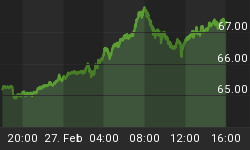For nearly 80 years, Mexico kept its borders closed to foreign oil interests, with the state-owned and -run Petroleos Mexicanos (Pemex) being the only entity allowed to drill for gas in Mexican territory. In 2017, then-president Enrique Peña Nieto opened up Mexico’s considerable oil reserves to foreign oil companies and investors for the first time in nearly a century, but the long ailing Pemex has shown few signs of improvements thanks to the injections of foreign cash in recent years.
The last time foreign interests were permitted to invest in Mexican oil, it did not end well. The Mexican president at the time Lázaro Cárdenas seized foreign actors’ assets, used them to create the aforementioned nationalized oil monopoly Pemex, and exiled all international competitors. And now, nearly a century later, it’s looking as if history just may be set to repeat itself.
“Foreign energy companies that began flocking to Mexico six years ago after the government opened energy markets and ended a nearly century-old state-run monopoly are finding themselves increasingly unwelcome,” The Houston Chronicle reported this week. This time it’s a little more subtle than Cárdenas’ aggressive forced exodus, but the message is still loud and clear for non-Mexican energy entities operating below the border: they’re no longer wanted.
The message has come by way of petty citations and bureaucratic runarounds which have been accelerating and making life unnecessarily difficult for everyone and anyone who isn’t Pemex. “Even after tens of billions of dollars in investment, U.S.-branded gasoline stations in Mexico are being cited for minor or nonexistent infractions, while fuel from U.S. refineries is being held up at the border, the trade group American Fuel and Petrochemical Manufacturers says,” the Houston Chronicle details. “Government officials are withholding permits on fuel storage facilities without explanation. Laws have been changed to favor the state-owned oil company Pemex.”
All of this is happening under the watch of sitting Mexican president Andrés Manuel López Obrador, a leftist who upset decades of one-party control in a landslide election win in 2018. As part of López Obrador’s campaign trail promises, the Tabasco native talked a big game about restoring Pemex to its former (way former) state of glory, pledging to clamp down on widespread bureaucratic corruption within the ranks of Pemex and rampant fuel theft and significantly increase oil output. He also made no secret of his disdain for the 2014 energy reform bill that opened Mexican oil to foreign interests, based on his largely nationalistic and protectionist belief that the only entities to profit off of Mexican resources should be Mexican workers, Mexican companies, and the Mexican government.
In that sense, López Obrador has delivered on his campaign trail promises: he has scaled way back on lease sales in the Gulf of Mexico and has done everything in his power to undermine Peña Nieto’s energy policies, such as restoring Pemex’s power to undercut competitors’ gas prices. In the case of pushing out foreign investors altogether, however, he won’t be able to copy the ham-fisted Cárdenas policy--the reform is enshrined in the Mexican constitution.
This is why this time the weapons of choice are bureaucratic pitalls and hefty if not totally legitimate fees and fines. “The bureaucratic roadblocks represent a threat not only to future U.S. investment in Mexico but also to what some estimate to be close to $100 billion already invested by foreign energy firms, including Texas companies such as the refiners Phillips 66 and Valero,” reports the Houston Chronicle.
Will these protectionist policies and petty power plays help bail Pemex out of its yearslong downward spiral? Probably not. The company has been in serious trouble for a long time now, and returning to the old way of doing things won’t fix that--it was the old way of doing things that brought Pemex down in the first place.
By Haley Zaremba for Oilprice.com
More Top Reads From Safehaven.com:
















